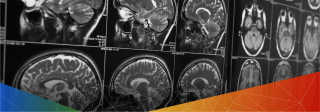
Postdoctoral Researcher
Are you curious about how the environments in which people spend time, and their movement through those spaces, influence people’s health? Are you interested in how climate change is affecting people’s physical and mental health and what motivates them to change their behavior? Are you motivated by research that promotes climate action, wellbeing and resilience in response to climate change, and health equity?
The Climate Communication Division of the Annenberg Public Policy Center is searching for a postdoctoral fellow with strong data analysis and writing skills, expertise in one of our research areas (e.g. communication science, climate change, geospatial research, health behavior change, wellbeing, neuroimaging), and interest in learning more about a new area. The Fellow will begin with secondary analysis of a large dataset that can be related to climate change questions, involving geolocation, ecological momentary assessment, and cigarette smoking (described in https://jamanetwork.com/journals/jamanetworkopen/fullarticle/2839409, https://osf.io/kyb64, https://cnlab.github.io/geo-remote-website/). The position allows for substantial independence and creativity in conducting new research as well. Example projects include: (1) examining relationships between geospatial mobility, exposure to climate-related environmental risk factors, and health; and/or (2) studying other individual and interpersonal factors (e.g., conversation, mood, social connection, purpose) that promote resilience and well-being in the face of ongoing challenges like climate change. A complete application will include a brief research proposal (1 page or less) about potential research questions the applicant might pursue with this dataset, and can also include a brief overview of other projects the applicant would like to pursue.
The Fellowship is in-residence in Philadelphia, PA. A modest relocation allowance will be made available to defray relocation costs. The position carries a competitive monthly stipend and Fellows can choose from several university health benefit plans, with co-insurance amounts varying based on the plan selected and number of dependents. Fellows will also have access to travel funding for presentation of research at scientific meetings. The Fellowship is contingent on external funding. This appointment is expected to last 24 months, with an initial appointment from summer 2026 to 2027, and a second year contingent on funding and satisfactory performance.
We embrace and encourage our team’s differences in age, color, disability, ethnicity, family or marital status, gender identity or expression, language, national origin, ability, political affiliation, race, religion, sexual orientation, socio-economic status, veteran status, and other characteristics that make our lab members who they are. Alumni from our lab have gone on to successful careers in research, academia, government, non-profit, and business arenas. Many of them continue to collaborate with us and with one another.
Training Activities
- Develop and lead research project focused on relationships between climate change, mobility, and wellness
- Collaborate with network of colleagues on research projects of mutual interest
- Collaborate closely with PIs, research directors, graduate students, and research staff to conduct the research and ensure deadlines are met
- Mentor graduate students and research staff
- Clean, check, and analyze data using reproducible methods
- Lead and co-author research papers
- Present research findings to academic and public audiences
Qualifications
Necessary
- A Ph.D. in communication, psychology, neuroscience, or another relevant field, within the last three years
- Excellent organizational and project management skills
- Demonstrated ability to independently develop research projects
- Demonstrated ability to write research papers
Preferred expertise (in a subset of the following)
- Conducting geospatial research and experience with relevant methods (strongly preferred)
- Conducting research related to health equity or community engagement
- Employing advanced quantitative methods (e.g., network analysis, fMRI, machine learning)
- Using R, Python, or other coding languages
To apply for this position, please email geo-postdoc@falklab.org with your CV, brief research proposal, and a cover letter / statement of interest (subject line: Geo Postdoc Application)! We will begin reviewing applications on Jan 15, 2025, and priority will be given to applications received before that date.
